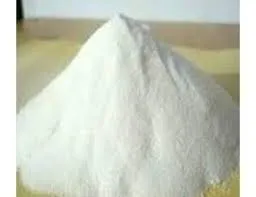
Sep . 04, 2024 19:27 Back to list
hydroxyethyl cellulose manufacturer
Hydroxyethyl Cellulose A Versatile Polymer for Various Applications
Hydroxyethyl cellulose (HEC) is a prominent non-ionic cellulose ether widely utilized in various industries due to its remarkable properties. Manufactured through the hydroxyethylation of cellulose, this polymer has gained recognition for its versatility, making it an essential ingredient in numerous applications ranging from construction to personal care products.
Manufacturing Process
The production of hydroxyethyl cellulose involves the treatment of cellulose with ethylene oxide in the presence of an alkaline catalyst. This process facilitates the substitution of hydroxyl groups on the cellulose backbone with hydroxyethyl groups, imparting unique functionalities to the polymer. The resulting product exhibits excellent water solubility and thickening properties, which can be tailored by modifying the degree of substitution during manufacturing.
Key Properties
One of the standout features of HEC is its ability to form viscous solutions at low concentrations. This property makes it an ideal thickening agent in various formulations. Additionally, HEC is characterized by its pseudoplastic behavior, meaning that its viscosity decreases under shear, making it suitable for applications where the ease of application is essential. Moreover, it is chemically stable, resistant to degradation, and has a high tolerance to salts, which enhances its usability in different environments.
Applications in Various Industries
hydroxyethyl cellulose manufacturer

In the construction industry, hydroxyethyl cellulose is extensively employed as a thickener and water-retention agent in cement-based products, such as tile adhesives, plaster, and joint compounds. Its ability to improve workability and reduce sagging makes it invaluable in ensuring high-quality finishes.
The paint and coating sector also benefits from HEC's properties. As a rheology modifier, it aids in maintaining the right viscosity and consistency of paints, ensuring uniform application and minimizing splatter. This contributes to better product performance and user satisfaction.
In the personal care and cosmetics industry, hydroxyethyl cellulose is frequently used in lotions, creams, shampoos, and gel formulations. Its ability to enhance texture and provide a smooth feel ensures that products appeal to consumers. Furthermore, its compatibility with various ingredients enhances formulation stability, which is critical for product efficacy and shelf life.
Pharmaceutical applications also showcase the versatility of HEC. It serves as a stabilizer and thickening agent in liquid formulations and is used in drug delivery systems. Its biocompatibility and non-toxicity make it a preferred choice in many pharmaceutical applications.
Conclusion
As a leading manufacturer of hydroxyethyl cellulose, companies recognize the growing demand for this multifunctional polymer. Its diverse applications across numerous industries highlight its significance in modern formulations. Innovations in manufacturing processes continue to enhance the quality and performance of HEC, ensuring that it remains a staple ingredient in the ever-evolving landscape of industrial and consumer products. With ongoing research and development, the future of hydroxyethyl cellulose looks promising, paving the way for new opportunities and applications.
-
Versatile Hpmc Uses in Different Industries
NewsJun.19,2025
-
Redispersible Powder's Role in Enhancing Durability of Construction Products
NewsJun.19,2025
-
Hydroxyethyl Cellulose Applications Driving Green Industrial Processes
NewsJun.19,2025
-
Exploring Different Redispersible Polymer Powder
NewsJun.19,2025
-
Choosing the Right Mortar Bonding Agent
NewsJun.19,2025
-
Applications and Significance of China Hpmc in Modern Industries
NewsJun.19,2025







